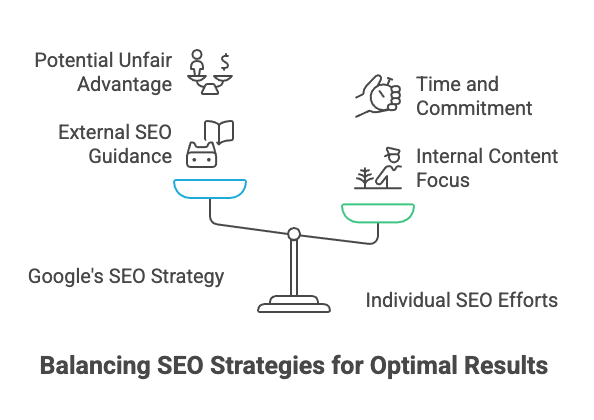Turns out Google’s in the market for an SEO Manager. Apparently, the company’s product pages – search aside, of course – don’t actually have the best SEO in the world. Who would’ve thought?
The job listing states, “As a Program Manager for Technical SEO, you will collaborate with various teams. These teams include Marketing, Sales, Product Development, and Engineering. Your goal will be to boost organic traffic and business growth.”
Furthermore, it adds, “You will be involved in website development and optimization. Additionally, you will help shape blog and social strategy. Moreover, you will improve website code quality. Finally, you will define web architecture for international websites.”
Those of you who are interested in applying for the job can find it on the Google Careers Portal. As for everyone else, there’s something to be learned about search engine optimization here.
Basically, it’s that anyone who claims that they know every answer to how Google’s search engine works – anyone who claims they’ve guaranteed strategies for upping your PageRank – is either delusional or lying to you.
Consider this. Even Google’s own internal departments lack a complete understanding of how their search engine functions. In fact, the company’s own on-page SEO is notoriously poor. That’s something to think about, isn’t it?
Of course, many involved in search engine marketing have long since accepted this unfortunate reality.

“Whatever you do, don’t spend money on aggressive SEO,” reads a Smashing Magazine post written by Paul Boag. “The inconvenient truth is that the best person to improve your ranking is you.
Unfortunately, that is going to take time and commitment on your part. The answer doesn’t lie in hiring an SEO company to boost your website ranking for Google.”
But wait…isn’t that exactly what Google’s doing?
Yes and no. While you certainly shouldn’t shell out money for SEO snake oil salesmen, there’s nothing wrong with bringing in a seasoned expert to guide your website in the right direction.
That’s what Google’s doing – they’re bringing someone onboard who has an idea of what works and what doesn’t from a search perspective, in the hopes that they can improve their rankings.
With that in mind, it is somewhat confusing that Google isn’t handling this internally. Perhaps they believe it would create an unfair advantage if they had an insider adjust their pages for higher rankings. Alternatively, maybe they are simply trying to gauge how well external parties understand their search engine.
Who knows? It could very well be both. Either way, the lesson here is clear:
Don’t obsess over making your SEO absolutely perfect. After all, even Google itself can’t do that. Focus on content, instead.




